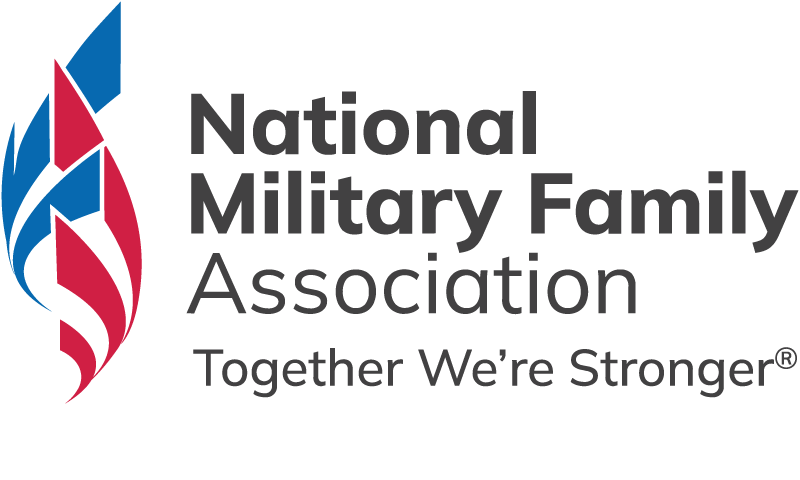Spouse Careers Are a Readiness Issue: Why the Military Spouse Hiring Act Matters

Every military move comes with sacrifice. For many spouses, that sacrifice means putting a promising career on hold, reapplying for a professional license delayed by relocation, or enduring months of waiting before being able to work again. Imagine earning a degree, building experience, and establishing a career, only to hit restart each time your family receives orders to the next duty station. This is the reality for nearly one million military spouses who bear the hidden costs of military life. When military spouses lack access to equitable employment, the strain doesn’t stop at home. It reverberates through the force, weakening family stability, undermining retention, and ultimately putting national security at risk.
The numbers tell the story plainly. Military spouses face an unemployment rate of approximately 22 percent, a staggering five times higher than the national average. Among spouses who do work, many report being underemployed; working in positions far below their level of education or skill. Almost half of military spouses hold a bachelor’s degree or higher, yet their talents are chronically underutilized. The reasons are complex but consistent: frequent relocations create resume gaps that discourage employers, state-by-state licensing rules force delays or retraining, and access to affordable and reliable childcare remains uncertain at best. The impact is profound. Lost income stalls retirement savings, undermines financial stability, and forces military families to live on a single income.
In recent years, the Department of Defense has worked to address these challenges. Programs like My Career Advancement Account (MYCAA), Spouse Education and Career Opportunities (MySECO), and the Military Spouse Employment Partnership (MSEP) have offered resources such as tuition assistance, skills training, and resume support. These initiatives make a difference for individuals, but they don’t address the underlying system. They ask spouses to adapt, to prepare themselves more thoroughly, to shoulder the burden of proving their worth relocation after relocation. What these programs cannot do is remove the structural barriers that make it so difficult for military spouses to build lasting, sustainable careers.
That’s where the Work Opportunity Tax Credit (WOTC) comes in. Created in the 1990s, the program gives employers a financial incentive to hire individuals from targeted groups. When veterans were included as a targeted group following the passage of the VOW to Hire Heroes Act of 2011, the effect was immediate and powerful. Between 2019 and 2023 alone, more than 630,000 veteran hires were supported by the tax credit. By offsetting onboarding costs and reducing perceived risk, the program changed employer behavior. It worked not because veterans suddenly became more qualified, but because the system shifted to recognize and reward the value they already brought to the table.
The Military Spouse Hiring Act would apply the same approach to spouses that has already proven effective for veterans. By adding them to the list of targeted groups under the Work Opportunity Tax Credit, the bill would give employers a federal tax credit of up to $2,400 for each military spouse they hire. This credit helps cover onboarding costs and reduces the perception of risk when hiring someone who may later need to relocate. The policy change is simple, but the potential impact is profound. It would ease the constant cycle of starting over, strengthen families’ financial security, and allow local communities to benefit from a pool of highly educated, skilled professionals. Just as importantly, it would mark a shift from expecting military spouses to constantly “fix” themselves to asking the system to work better for them.
Military spouse unemployment carries a heavy price tag, with the broader social cost of adverse employment conditions estimated between $710 million and $1.07 billion annually. In this context, the return on investment from expanding military spouse employment is undeniable. More spouses in the workforce means more taxable income, less reliance on public assistance, and stronger family well-being. The payoff also extends far beyond economics: it means healthier families, stronger retention across the armed forces, and communities enriched by the contributions of military spouses. Stable and supported families make it more likely that service members will remain in uniform, reducing costly turnover for the military and strengthening national security.
Spouse employment is a readiness issue as much as it is an economic issue. When military spouses struggle with unemployment or underemployment, they are significantly less likely to speak positively about military life. This clearly indicates that career barriers directly affect family well-being and service member retention. When military families face persistent financial stress, it erodes resilience at home and readiness in the field. These pressures come at a time when the armed forces already face historical retention challenges, spending billions of dollars on bonuses and incentives to keep people in uniform. Policies like the Military Spouse Hiring Act recognize that family stability and force readiness go hand in hand, ensuring that spouses can build meaningful careers while safeguarding the strength, sustainability, and future of our military.
Momentum is building on Capitol Hill. Major supporters of the Military Spouse Hiring Act in Congress include Reps. Don Beyer of Virginia, Mike Kelly of Pennsylvania, John Carter of Texas, and Jimmy Panetta of California in the House, along with Sens. Tim Kaine of Virginia, Mike Rounds of South Dakota, John Boozman of Arkansas, and Maggie Hassan of New Hampshire in the Senate, with the bill continuing to attract new cosponsors from both chambers. Organizations across the military community, including the National Military Family Association, the Military Officers Association of America, Blue Star Families, and Hiring Our Heroes, are united in urging its passage. The message is clear: this is not a partisan issue, but a practical solution with broad benefits for families, employers, and the strength of the force.
Military families cannot afford to wait another decade for systemic change. Now is the time to act, and your voice can make the difference. Reach out to your elected officials through our Military Family Action Center and tell them why military spouse employment matters. You can also share your story with NMFA so we can help you show lawmakers the real impact of these challenges on families like yours. Together, we can transform a proven idea into a lasting policy and build a future where military families thrive.
Together We’re Stronger®
By: Olivia Brinsfield, Content Manager





